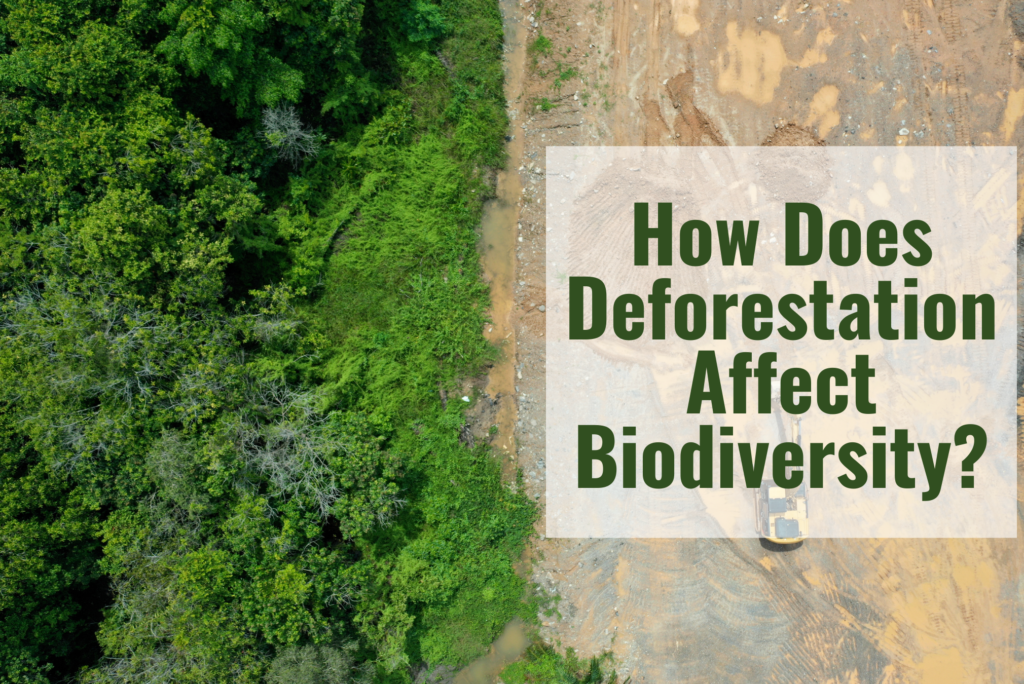
Deforestation, the widespread clearance of forests for various purposes, has profound consequences on the planet’s ecosystems. One of the most significant impacts of deforestation is its effect on biodiversity—the variety and richness of life forms within a given area. This article delves into the intricate relationship between deforestation and biodiversity, highlighting the ways in which this environmental practice reshapes ecosystems and poses challenges to the delicate balance of life on Earth.
Background information: Biodiversity Fact Sheet
Biodiversity: A Precious Asset
Biodiversity is a crucial component of healthy ecosystems. It encompasses the variety of species, genetic diversity, and ecosystems present in a particular region. Biodiverse ecosystems are more resilient, adaptable, and capable of providing essential ecosystem services such as pollination, water purification, and carbon sequestration. The intricate interdependencies between species and the balance they create help stabilize ecosystems, making them less susceptible to disruptions.
Read more: What Is Biodiversity and Why Is It So Important?
Deforestation: A Threat to Biodiversity
Deforestation, driven by factors such as agriculture, logging, urbanization, and infrastructure development, strips landscapes of their natural vegetation cover. This transformation can lead to a domino effect on biodiversity. The direct removal of trees eliminates habitats for countless species, from insects to mammals. The disruption of habitats can lead to population declines or even extinctions, as species struggle to find suitable homes and resources.
Loss of Habitat and Specialist Species
Deforestation fragments habitats, creating isolated patches of remaining forests. This fragmentation makes it difficult for species that require large territories to find sufficient space to thrive. Specialist species, which have evolved to rely on specific plants or conditions, are particularly vulnerable. As their habitats disappear, their chances of survival diminish, potentially leading to local or global extinctions.
Edge Effects and Invasive Species
The creation of habitat edges—areas where natural vegetation meets cleared land—can alter environmental conditions, exposing species to new challenges. Edge effects can include increased exposure to predators, temperature fluctuations, and changes in humidity. These altered conditions may favor certain species over others, leading to imbalances in the ecosystem.
Moreover, deforested areas often become more susceptible to invasive species. In the absence of natural competitors or predators, these non-native species can rapidly colonize the disrupted ecosystems, outcompeting native species for resources and further reducing biodiversity.
Disruption of Ecosystem Services
Biodiversity loss due to deforestation can disrupt essential ecosystem services that humans rely on. For instance, forests play a crucial role in regulating water cycles and preventing soil erosion. When trees are removed, the ability of forests to absorb and retain water is compromised, leading to increased flooding, decreased water quality, and decreased agricultural productivity downstream. In turn, these impacts can lead to increased loss of biodiversity in addition to negative impacts on human health and economies.
Conservation Efforts and Solutions
Efforts to mitigate the impact of deforestation on biodiversity include the establishment of protected areas, reforestation initiatives, and sustainable land-use practices. Protected areas, such as national parks and wildlife reserves, serve as refuges for diverse species. Reforestation involves planting native tree species in deforested areas, restoring habitats, and supporting ecosystem recovery. Sustainable land-use practices promote responsible forestry, agroforestry, and community-based management, ensuring that human activities harmonize with nature.
Deforestation’s impact on biodiversity is an urgent global concern. As ecosystems continue to be transformed at an unprecedented rate, the loss of species and habitats reverberates through ecosystems, affecting everything from the food chain to the stability of our climate. Recognizing the importance of biodiversity and its intricate connections with the health of our planet is crucial for crafting effective conservation strategies. Only through concerted efforts to preserve and restore forests can we hope to mitigate the adverse effects of deforestation on biodiversity and safeguard the Earth’s natural heritage for generations to come.
Read More
- What Is the Single Greatest Threat to Biodiversity? – Learn how habitat loss impacts biodiversity.
- What Is the Effect of Wildfires on Biodiversity? – Get the facts on how wildfires affect biodiversity…it may not be what you think.
- Importance of Biodiversity – Learn why biodiversity matters, both to humans and the environment.